Coaching Quote of the Day 29th May 2013
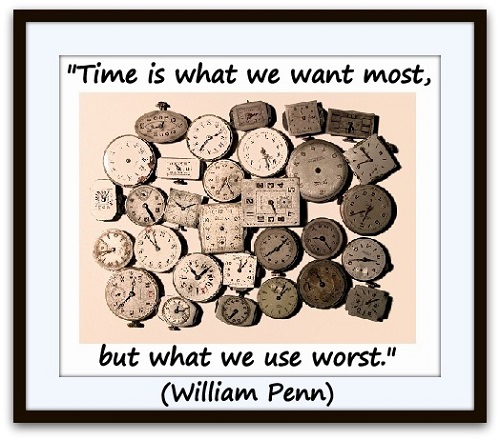 “Time is what we want most, but what we use worst.”
“Time is what we want most, but what we use worst.”
(William Penn)
 “Time is what we want most, but what we use worst.”
“Time is what we want most, but what we use worst.”
(William Penn)
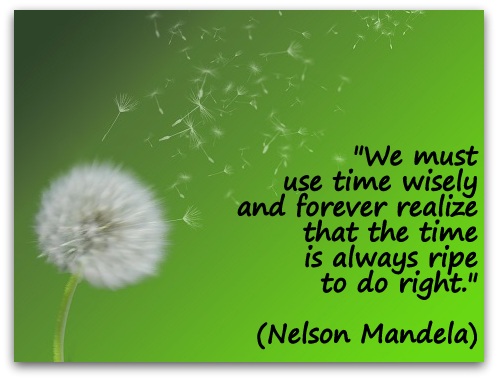
“We must use time wisely and forever realize that the time is always ripe to do right.”
(Nelson Mandela)
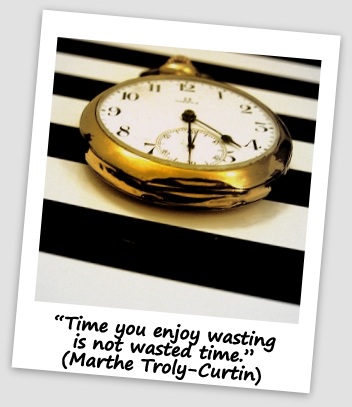
“Time you enjoy wasting is not wasted time.”
(Marthe Troly-Curtin)

“Don’t say you don’t have enough time. You have exactly the same number of hours per day that were given to Helen Keller, Pasteur, Michaelangelo, Mother Teresa, Leonardo da Vinci, Thomas Jefferson, and Albert Einstein.”
(H. Jackson Brown Jr.)

“There is no beginning of time, only beginning of thought.”
(Byron Katie)
Business productivity coaches, Laura Waite and Collin Lyons, share their thoughts and expertise in today’s guest post.
by Laura Waite and Collin Lyons
If you spend any time in meetings, here’s a scenario you may find familiar: an hour is allocated to discuss the issues and what needs to be done about them. The group examines every angle, shares each person’s opinions, and then turns its attention to considering what to do… only to discover the time is up.

Many of us find meetings less productive than they should be. This may be familiar to you, either in your meetings or those of your clients. As coaches, on committees or in teams, we rely on meetings to come together, share ideas and ultimately make decisions. However, research shows that only 50% of meetings get through all the planned content*.
You don’t have to be stuck in that rut, and neither do your clients! There’s a simple tool that can turn meetings into brainstorming powerhouses and, whether you find yourself running group meetings or you have a client whose productivity levels are low, everyone can end the meeting feeling positive and clear about the road ahead.
The tool is called “Meeting Outcomes” and it’s the key to a productive meeting, because it ensures you are engaging the right people on the right problem. Essentially, a Meeting Outcome is a brief description of what you will make, decide or generate during that meeting. It provides a solid goal for attendees to achieve. Here are some tips to make Meeting Outcomes work for you:

Meeting Outcomes are one of the most valuable tools on our coaching belts – we use them whenever we plan a meeting and our clients are regularly impressed at both the outcome and the ease of application, often remarking that it increases the productivity of the meeting substantially. Ultimately, the energised, focused attitude that Meeting Outcomes encourages not only increases a meeting’s productivity by making sure it goes where you wanted it to go, it also provides you with positive, willing attendees who will be excited about your coaching ideas – and excited to take them away and use them!
Want to enhance your technique? Tips for deciding Meeting Outcomes together as a group, using Meeting Outcomes to decide whether to attend a meeting and helping people focus on Meeting Outcomes once you have them are available on our website 🙂
* CyberMeetings by James L. Creighton and James W. R. Adams
Laura Waite and Collin Lyons are the duo of business productivity coaches behind Flowmotion. For people in the office world who want to feel the buzz, Flowmotion is an enterprise that will awaken your passion for work. To address the all-too-typical experience of unenergetic working lives, our mission is to redesign how people interact with their environment to generate engaging, productive and collaborative atmospheres and organisations. We share several decades of experience providing organisational transformation and executive coaching and have worked with large and global organisations including: British Telecom, British Petroleum, Standard Life Assurance and Investments, British Gas/Centrica, JPMorgan Chase, Wells Fargo, Allied Irish Bank and the UK Government. You can find us at www.flowmotioncafe.com 🙂
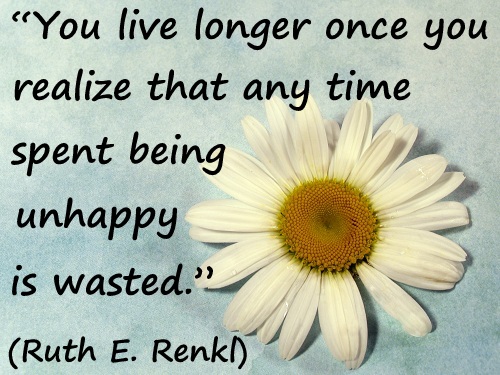
“You live longer once you realize that any time spent being unhappy is wasted.”
(Ruth E. Renkl)
Do you agree with this quote?
You’re welcome to share below
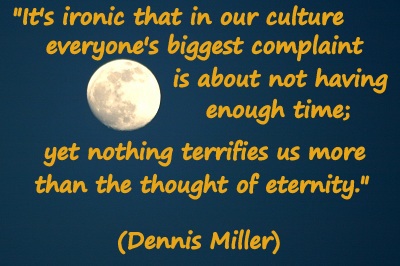
“It’s ironic that in our culture everyone’s biggest complaint is about not having enough time; yet nothing terrifies us more than the thought of eternity.”
(Dennis Miller)